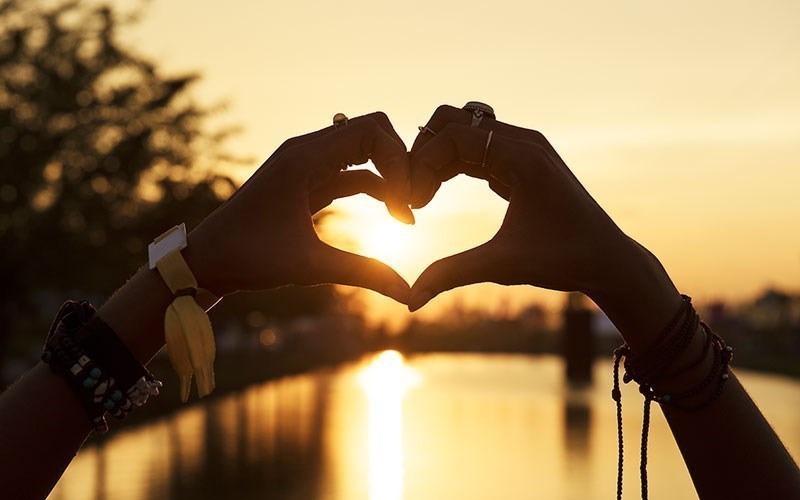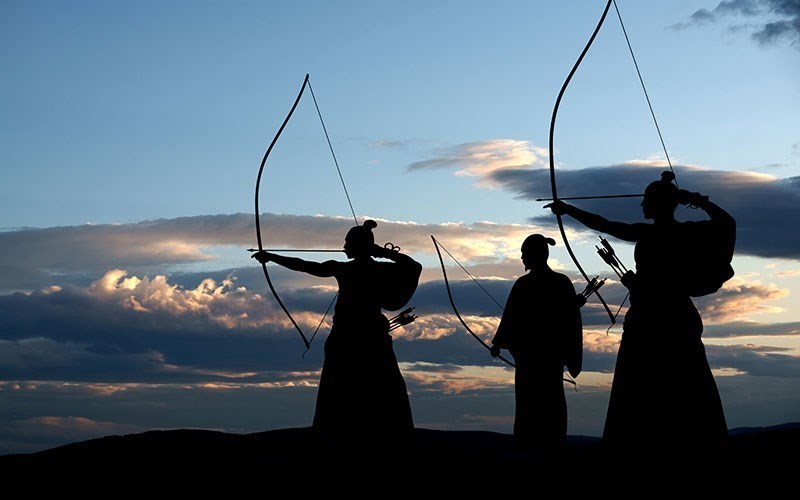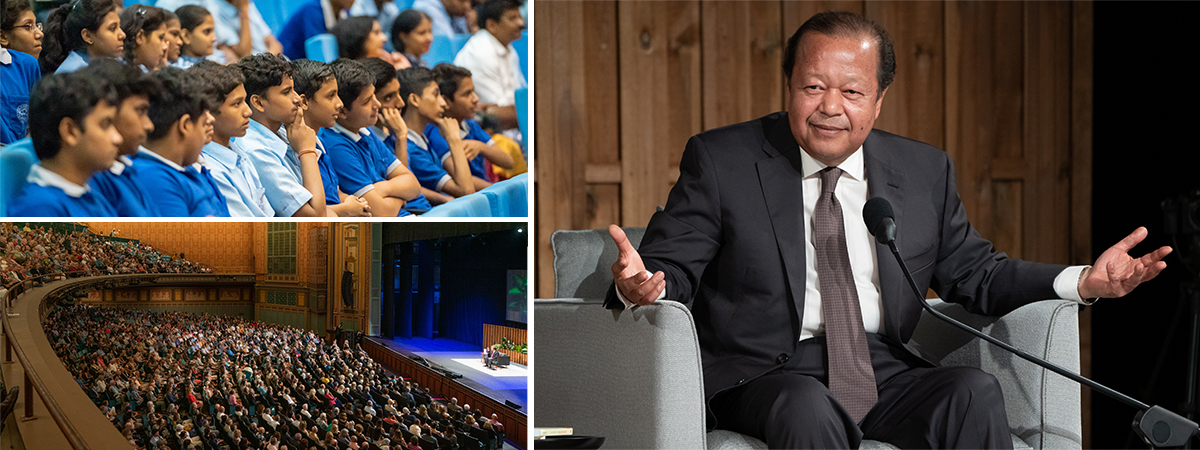Topics
 00:03:20
Your Life, Your Day
Audio
Duration : 00:03:20
Hang on to the good in you. Be with it! Pamper it!
00:03:20
Your Life, Your Day
Audio
Duration : 00:03:20
Hang on to the good in you. Be with it! Pamper it!
This is your life; this is your day. And you cannot judge your life by the things that happen in it—because good things will happen and bad things will happen. And this is what’s going to make you incredibly vulnerable.
Your life doesn’t live for your dreams. Your life doesn’t live for your fantasy. Your life lives for you, and you have to live for your life, for this time that you have, the possibilities that abound because you exist.
So many explanations, so many complexities, so many ideas—but they all come and go. They all come and go; that’s just their nature. And you, so far you are alive, you’re constant. You look at your body—and that’s not constant. It’s changing, changing, all the time. You just don’t notice it.
You know, one of the things I like to do is time-lapse photography. And just to see how everything moves—clouds, how fast they actually move. How always, constantly, they’re changing. And everything is passing by so fast.
But it’s not about that; it’s about our perspective. What is your perspective of your existence, of your life? When good things happen, unfortunately you boost your ego. “I did this; I did that; oh my God, I, da, da-da….”
And then, when bad things happen, you lose heart; you lose patience with yourself, and you blame yourself for everything. That’s no way to live—like a yo-yo—up and down, up and down, up and down.
So, find that stability, because that’s inside of you too. Discover it, and hang onto it. Hang on to the good in you. Be with it! Pamper it!
The decision you have to make is which course are you going to follow? That’s the decision you have to make. Set the course, and then go with it. If the course you select is, “The priority in my life is joy, is clarity. And I will do everything to promote that.”
Not sadness, not self-beating, not feeling guilty about things that I didn’t even do—and accepting failure.
And if you decide that’s not the path you want to choose, then set your course accordingly. Because once you’ve chosen that, all the decisions come easy. It’s like, “Okay, and now I know—that’s the path I’m going.”
“That’s the path I’m going.”
– Prem Rawat
 00:03:38
The Hands, Head and Heart
Video
Duration : 00:03:38
We have to understand that matters of peace come from the heart.
00:03:38
The Hands, Head and Heart
Video
Duration : 00:03:38
We have to understand that matters of peace come from the heart.
When I first got the invitation for this event, you know, there was a little line there that said about “the hands, the head, and the heart.” And for me, that was very, very interesting—that an institution that is promoting education, giving education, is talking about something so basic, something so fundamental.
So, I know what a head is—it’s right up here—and I know what hands are. I use them every day, and head too, try to. Sometimes it doesn’t work. But the question becomes, “What is the heart?”
And of course we are here to talk about peace, but we also have to understand that the matters of peace come from that heart. That when somebody says, “kindness is important,” that that has something to do with the heart.
So, what is that heart? I mean, obviously it’s not that physical thing that pumps, because that gets attacks, gets infarctions, you know, gets stents put in. So I mean, it would very different to say, “Okay, that’s your heart.” So, what is the heart? And I don’t stand here to be an expert on anything, but I can tell you that in each human being....
Every single human being—and when I say this, I mean it—is perfect. Every human being is perfect. And what do I mean by that? And what makes them perfect? Because fifty percent, exactly fifty percent of them is bad—perfection. And the other fifty percent is good. And that’s what makes you a human being!
So there is the fifty percent that is terrible. And the good news is—that’s the bad news—the good news is that there is the fifty percent that’s incredible. And that fifty percent is what peace is all about. That fifty percent is the goodness of every human being.
And where the heart comes in, over the mind, is the ability to choose that fifty percent “good.” Choose. It’s a choice! Do you know, peace is a choice?
– Prem Rawat
 00:03:03
You Choose
Audio
Duration : 00:03:03
Your choices make a difference. But you have to choose.
00:03:03
You Choose
Audio
Duration : 00:03:03
Your choices make a difference. But you have to choose.
Who are you? If you don’t know who you are, how do you know how you’re supposed to be? How are you supposed to be? Because we don’t know who we are. We don’t know who we are.
What is a human being? A human being is the vessel that is capable of feeling peace. If you are capable of feeling peace, what do you do in your life every day so that you can feel peace?
You, in your life, have the possibility of learning the fundamental thing—this is all I say: “Learn about yourself.” Look at everything you have learnt. You will find that the only thing you haven’t learned is about yourself. Because it’s not taught in schools; it’s not taught in universities. There’s nobody who teaches you about you.
And if you don’t know about you, if you don’t know about yourself, you will be a stranger all your life—to whom? To you. You know about your friends; you know about everybody else, but you don’t know about you.
You are a source of incredible knowledge, and you are a source of incredible ignorance. Ignorance is darkness; it will bring you confusion; it’ll bring you pain. And knowledge is the source of light. It’ll bring you joy; it’ll bring you hope; it’ll bring you understanding. But you have to choose—not one day, but every single day.
The peace you are looking for is inside of you—always is, even in your moments of pain, even in your moments of sorrow. I don’t care how far high-reaching you are, how successful you are; you are still capable of feeling joy and pain. And what you feel with the joy or pain does not depend on anybody else—but on you.
And that’s wonderful if we understand, fundamentally, to improve the quality of life does not only take education, does not only take prosperity, does not only take dignity, but it takes understanding of who you are.
And then? There can be a whole world that can appreciate what peace is. Your choices make a difference. But you have to choose.
– Prem Rawat
 00:05:45
You Are What You Practice
Audio
Duration : 00:05:45
Today, you can live with completeness, with fullness
00:05:45
You Are What You Practice
Audio
Duration : 00:05:45
Today, you can live with completeness, with fullness
How can a human being choose compassion over hatred? How can a human being choose love; how can a human being choose wisdom over ignorance? How can a human being choose light over darkness? How?
I have a story—it’s also in the book that has come out. And this story is about an archer. He goes from town to town, displaying his skill of his archery. And he’s very good, very good. He picks up an arrow and sends it, and it hits the target right in the bullseye. Next arrow whoosh—tears the first arrow apart.
People come from the villages, all stand there and clap, applaud him. And of course, this makes the archer feel very good.
One day he is exhibiting his skill, and all of a sudden everybody is clapping, applauding, “Wow, this is amazing! This is amazing!”—and he hears somebody singing at the top of their voice, singing, “It’s only a matter of practice.” Singing! “It is only a matter of practice.”
He did not like that. He’d like to think that he was the best! And it was special for him—and it wasn’t just a matter of practice, but it was him!
So, after the show was over, he went looking for who was singing, “It’s only a matter of practice.” So he goes, and he sees this man sitting there with two very large pots, very large clay pots full of oil in the front, in the back. A pole. And he says, “Were you singing?” And he goes, “Yes. I was singing.”
“So what do you mean, it’s a matter of practice? Don’t you see how many people come to see me? They come; they applaud. I am so special; I am…I am so good.” And he said, “Look. You are good at archery because you practice. Let me show you something that I practice.”
So he picked up a big clay pot of oil, took an empty bottle, put it down; picked up the big clay pot and poured oil from the big clay pot through the neck of the bottle and filled the bottle without dropping a drop. Then he said to the archer…he said, “Now, you try it.”
The archer said, “I understand. I could not do that. You practice pouring oil, and you are good at it. I practice archery; I am good at it.”
So my question is this: “What are you good at?” If you practice kindness, you will become good at kindness. If you practice compassion, you will become good at compassion. If you practice hate, you will become good at hate. What do you practice?
How long does it take you to become angry? How long does it take you to become disappointed? How long does it take you to lose hope? How long does it take you to doubt? Because if you do this, then this is what you’re practicing.
And more you practice, the better you will get. The better you get at the wrong thing, you will not realize your potential.
Today is your day. You can be kind. Today, you can live with completeness, with fullness. Today, you can live with understanding. Today, you can feel alive.
– Prem Rawat
 00:02:42
The Cost of Distraction
Audio
Duration : 00:02:42
You should be attracted to your existence
00:02:42
The Cost of Distraction
Audio
Duration : 00:02:42
You should be attracted to your existence
If you have ever seen a magician perform—and you have to pay attention to how they do what they do—it’s very interesting.
Because whatever they do (if they’re hiding a coin or whatever), they distract you from what’s really happening, and they’ll do something else with the other hand, and you’re looking at that hand, whilst they’re doing what they’re doing.
And it’s so smooth that—you go, “Oh my God, what just happened? How did he do that? How did he produce, you know, this dollar bill out of his shirt?” I mean, you have to think. Yeah, And people will sit there and people will applaud.
And obviously, I mean, if he could do that for real—make hundred-dollar bills come out of his sleeve—why would he be doing this performance? He could be having a nice vacation on a Caribbean island somewhere, you know, sipping his umbrella drinks.
But he’s not doing that. He’s traveling, town to town, place to place, trying to make a meager living while fooling the audience—and this is the point of it. He’s actually fooling you, and you’re applauding being fooled.
This is the same problem I have with people when they’re watching a movie, and then they start crying! And I’m like, “But this really didn’t happen.”
And it’s bizarre watching TV in India, because that same actor could be in four different movies. And you switch a channel and it’s like, (ha,) and he’s there, and kissing another girl, and then running away with another girl—and it’s like, “What’s with this guy?”
But, we get fooled! And we have a propensity to get attracted to something that takes us away from where we truly should be attracted to.
So, distraction is actually another attraction, but it’s taking you away from what you should be attracted to. You should be attracted to your existence. Why? Because it is the most precious thing there is. There’s nothing more precious than being alive. This is one thing that nobody is selling and nobody can buy!
– Prem Rawat
 00:03:50
Tall Ship and a Compass
Audio
Duration : 00:03:50
The individual is missing from the equation of peace.
00:03:50
Tall Ship and a Compass
Audio
Duration : 00:03:50
The individual is missing from the equation of peace.
Peace—either you feel it in your life or you don’t feel it in your life. If you feel it in your life, enjoy it! If you don’t feel it in your life, find out how you can get to that peace. And that’s the only area where there is something to say: “How can you get to it?”
And the first step is, what is peace? What is this elusive thing that we are all trying to pursue? Is it an idea? You know, it’s like somebody who makes statues. Maybe they take a pencil and they draw their idea on a piece of paper, but that’s obviously not a statue—it’s just an idea.
And then they take the chisel and a hammer and a piece of marble that is the size of that statue that they want to be, and what do they do? They create a statue. Okay. But what is the process of creating the statue?
The process of creating the statue is to remove all the unwanted marble, so that what is left is the true expression of the artist, of what he really feels.
Could it be that peace is no different? That it is removing all those things that do not belong there, leaving only that that the intent of the artist has.The questions that begin to form are, “Is what we are doing what we really want to do?” Because, what has gone away from peace? Why do you not think that the peace is a happening thing?
The individual is missing from the equation of peace. Peace is not social. It’s an individual…it is an individual phenomenon. And this is what has to be understood! That, if we want peace, we have to look at our own thirst, explore our own thirst for that peace.
This is what will drive the drive that is needed to find peace in our lives. And we search—because we, as human beings, we do not want these wars. We, as human beings, do not want this confusion. We, as human beings, don’t want all of this stuff. All we want is the simplicity. All we want, truly, truly, truly….
It’s like that beautiful saying, “Give me a tall ship and a compass to steer by.” That compass…
– Prem Rawat





